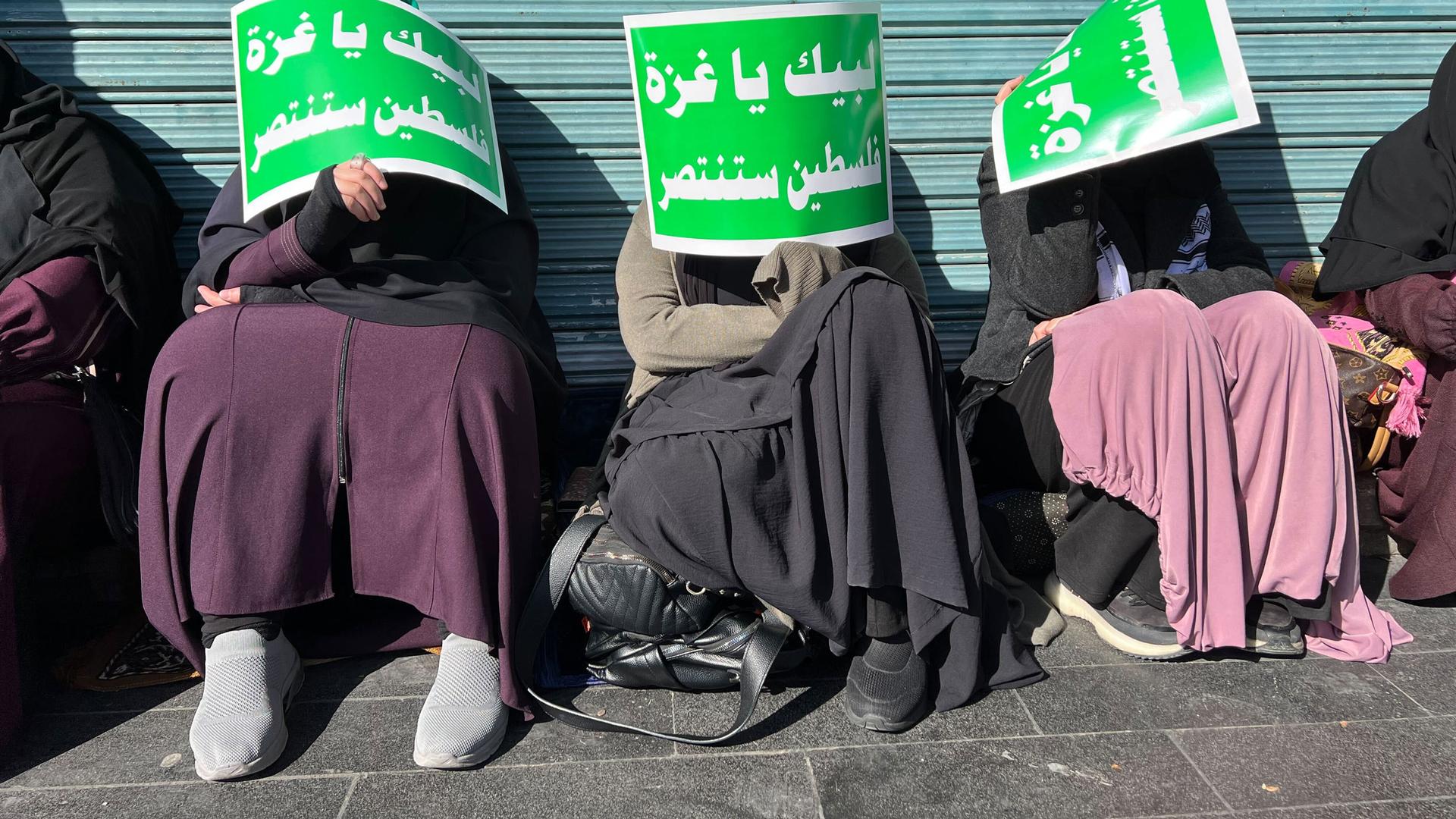‘We have cried tears of blood’: Jordanians protest Israel-Hamas war amid security, humanitarian concerns
At a mosque in downtown Amman, Jordan, hundreds of people were gathered around lunchtime for Friday prayers. The mosque was full, so people spilled out into the streets with prayer mats.
The road was closed and there was heavy police presence due to recent protests that have rocked Jordan since the beginning of the war between Israel and Hamas.
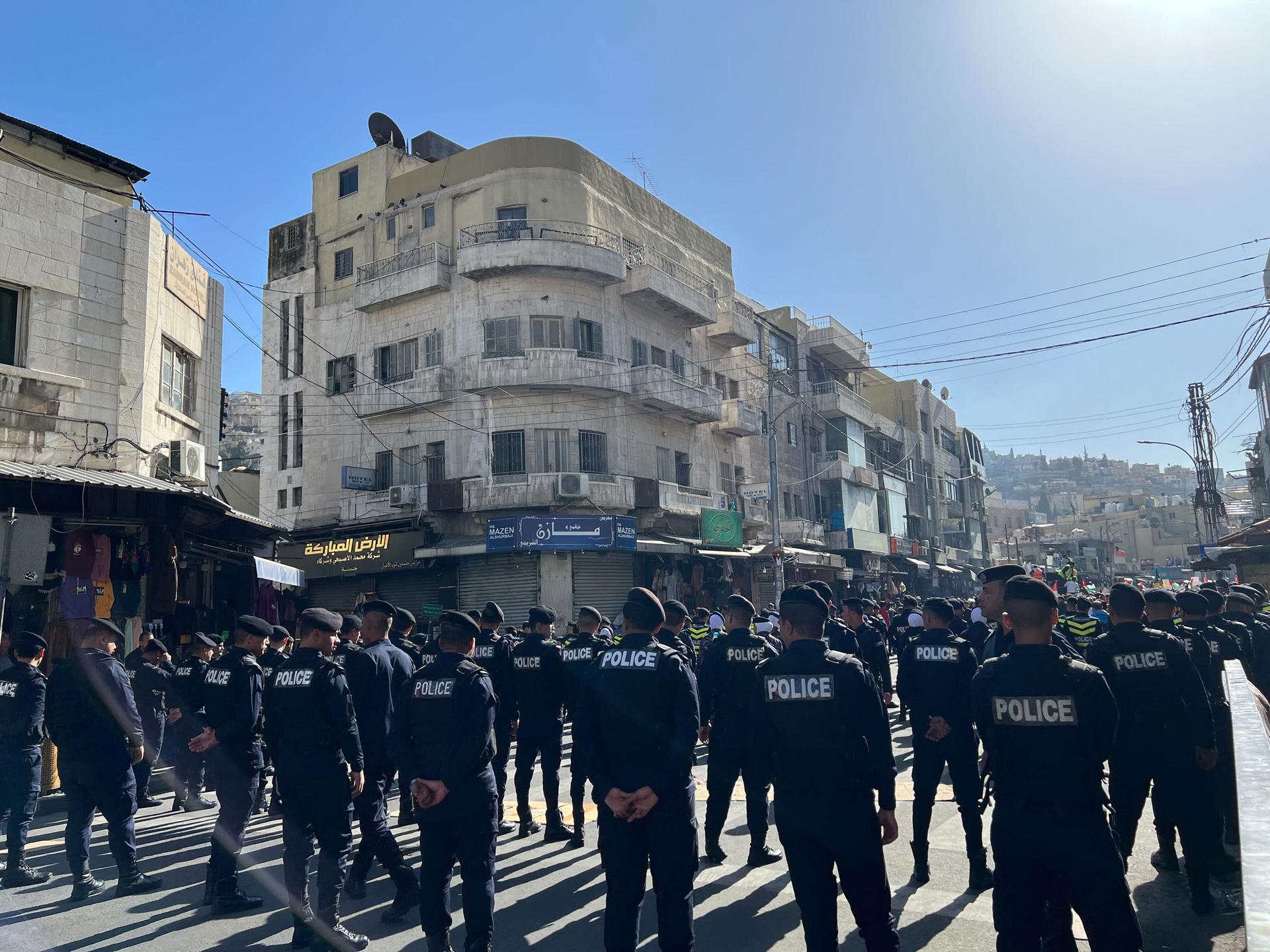
In 1994, Jordan signed a peace treaty with Israel. Since then, there’s been a fragile but sustained calm in this region. But following the Israeli bombardment of Gaza, and an increase in settler violence against Palestinians in the West Bank, relations between Jordan and Israel have soured.
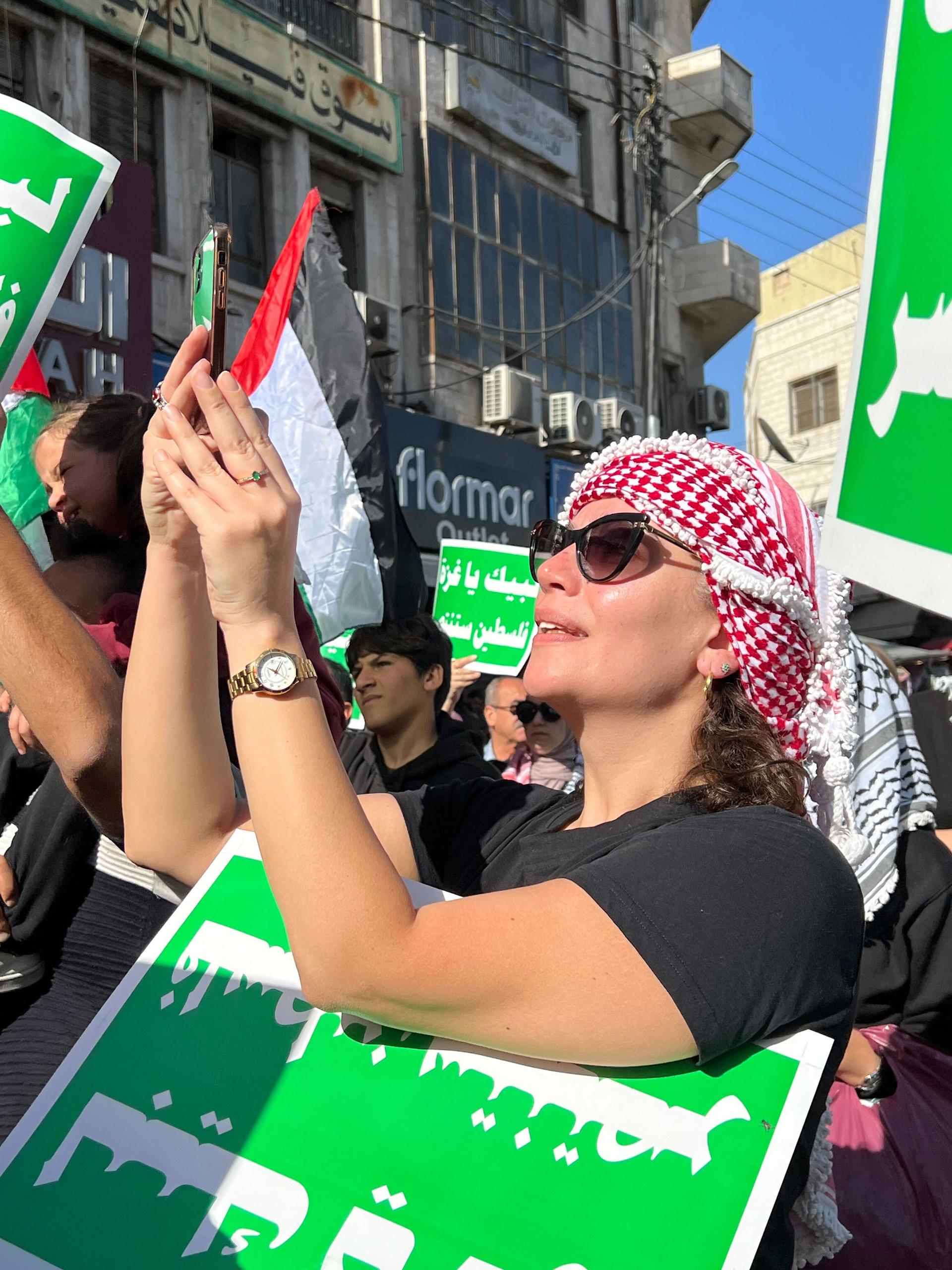
Last month, Jordan recalled its ambassador to Israel and called off a major water and energy deal. And after a brief lull in protests during the temporary ceasefire, demonstrations have resumed again in Amman.
Ibrahim Sharaf is from Gaza and still has family there.
He said he still has deep scars on his legs from when he was 17 years old and got shot by Israeli security forces while taking part in a demonstration in Gaza. Since then, he’s been in and out of hospitals and came to Jordan to receive medical treatment.
Over the phone, Sharaf’s mother said the bombings from the Israeli military have resumed again in the south, where she fled after the Israeli military instructed Gazans to vacate the northern area.
Now she and the whole family are stuck there, she said, with nowhere else to go.
Sharaf said he’s already lost 200 of his family members and relatives since the war began on Oct. 7.
On the streets of Amman, thousands of Jordanians and Palestinians have taken to the streets to chant in support of Palestinians in Gaza. Protesters were also calling for the shutdown of the American Embassy and the US military base in Jordan. Many say they are angry because they see the US as enabling Israel’s war in Gaza.
Outside of Amman in the Jordan Valley, farmers and herders along the Jordanian border are also paying close attention to the war in Gaza.
Farmers in this area plant citrus, bananas and various vegetables that thrive in hot, arid climates.
This area is right next to the Jordan river, and on the other side of the border are the occupied territories, visible in the distance.
This area has gotten a lot of attention in recent weeks because of an uptick in Israeli settler violence in the West Bank. Officials in Jordan say they do not want any of the recent tension there to spill over into Jordanian territory.
Mabrouk Abdullah, 21, sells fruits by the side of the road. He said he’s been following the news out of Gaza on his phone. The images and videos he’s seen are disturbing.
Since the start of the war, his business slowed down a lot, he said. Visitors stopped coming, even though this area is one of the top tourist destinations in Jordan.
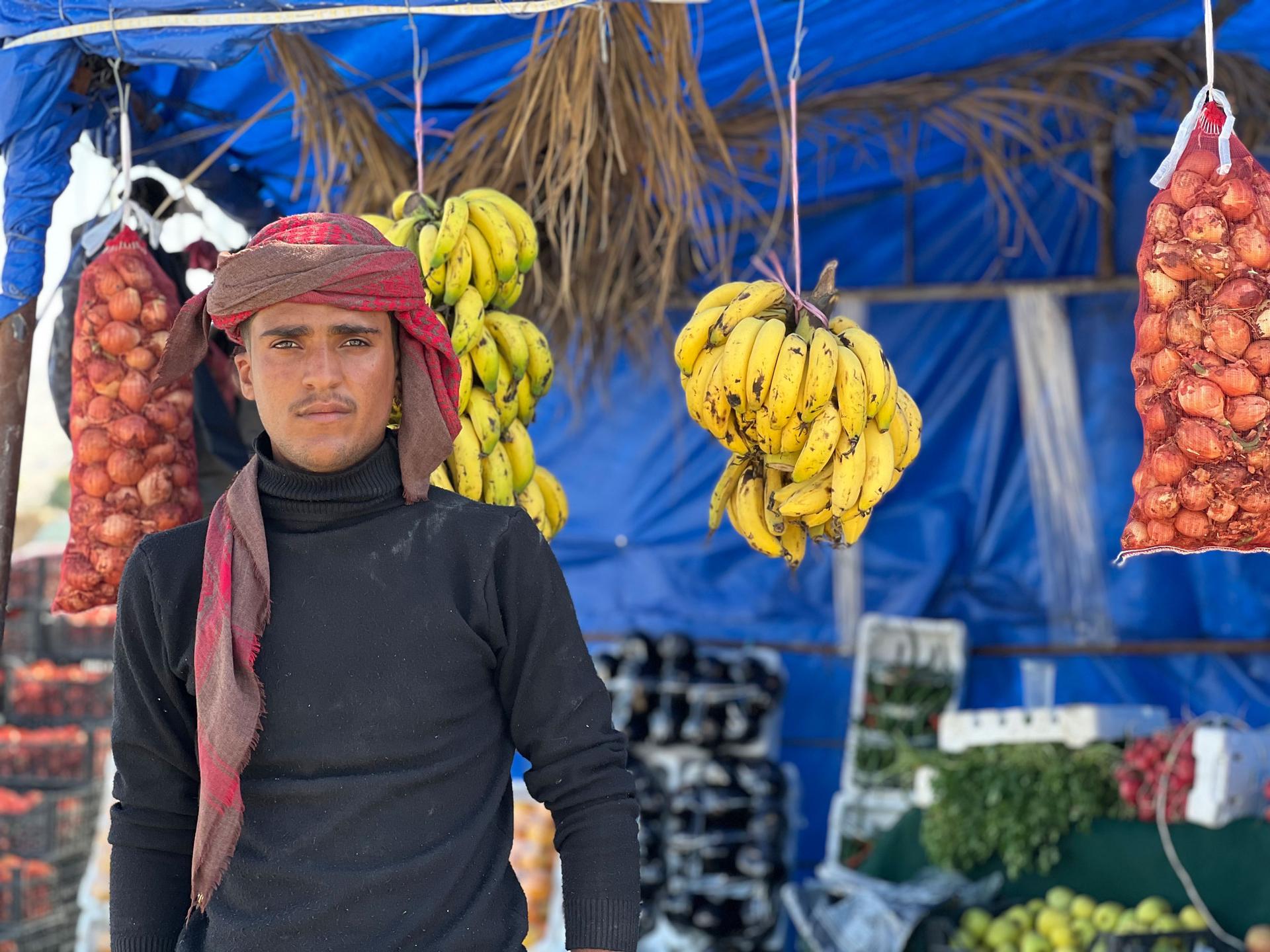
But Abdullah said he worries about the people in Gaza more than he cares about his income. He knows what it’s like to live under bombardments: He came to Jordan last year from Yemen, which has been at war since 2014. He fled one conflict, but he said he’s ready to go fight in Gaza in support of the Palestinians.
“When you see all the people getting killed, it’s your duty to help,” he said.
This is a sentiment shared by many along this border — that Palestinians in Gaza and the West Bank are fighting for their land and their survival.
An estimated 60% of Jordanians are of Palestinian origin, and ties between the Jordanians and Palestinians run deep.
Mahmoud al-Kayed belongs to one of the Jordanian tribes living near the Dead Sea, and runs a small tea and coffee stand.
“We are very sad,” al-Kayed said. “We have cried tears of blood after watching women and children get killed.”
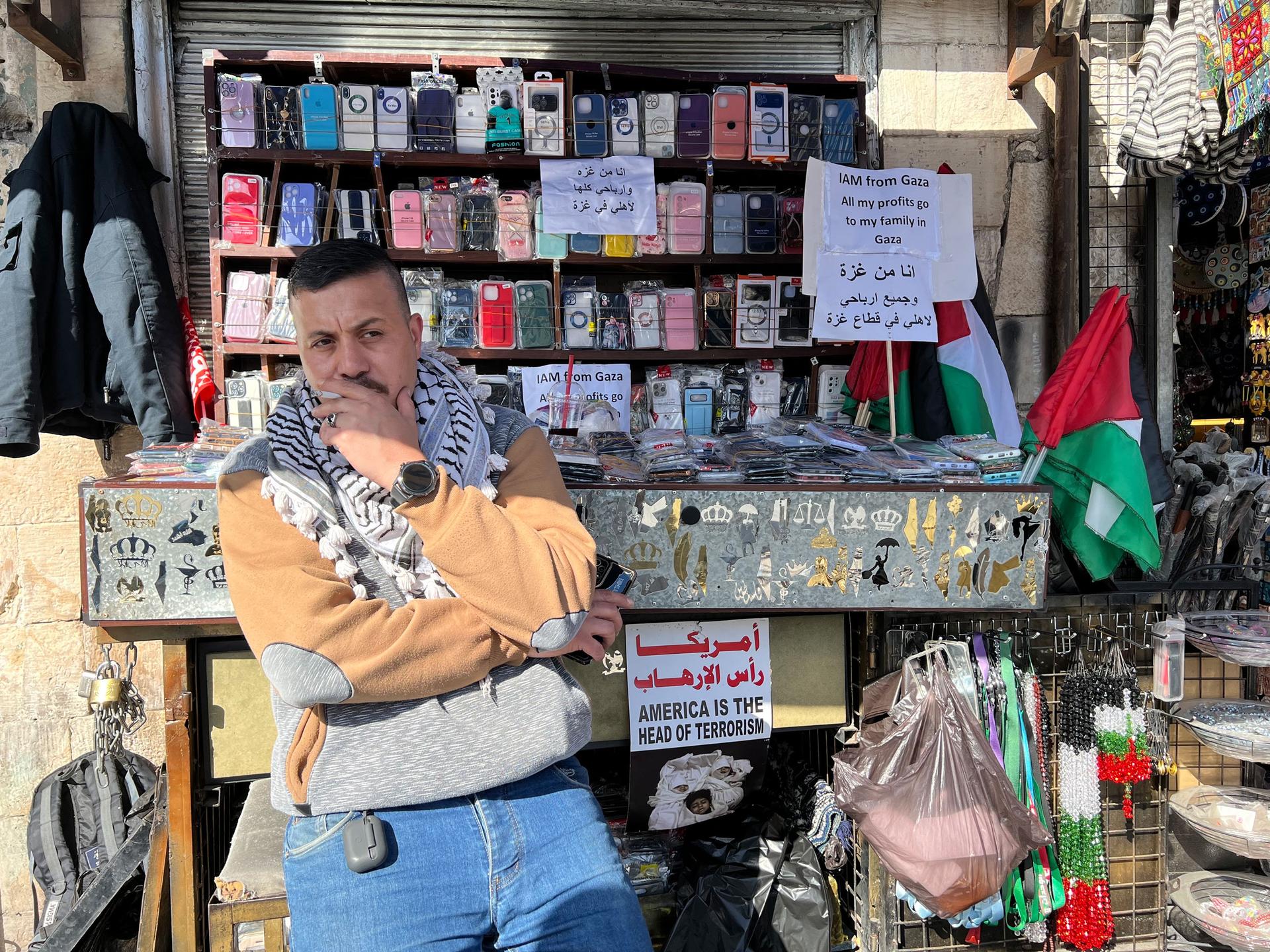
For Jordan, the war in Gaza is not only a humanitarian concern, but one of security as well.
Last week, Prime Minister Bisher Khasawneh said his country is increasing troops along this border region.
He warned Israel that any displacement of Palestinians into Jordan would be considered a breach of the 1994 peace treaty and a declaration of war.
The World is an independent newsroom. We’re not funded by billionaires; instead, we rely on readers and listeners like you. As a listener, you’re a crucial part of our team and our global community. Your support is vital to running our nonprofit newsroom, and we can’t do this work without you. Will you support The World with a gift today? Donations made between now and Dec. 31 will be matched 1:1. Thanks for investing in our work!
